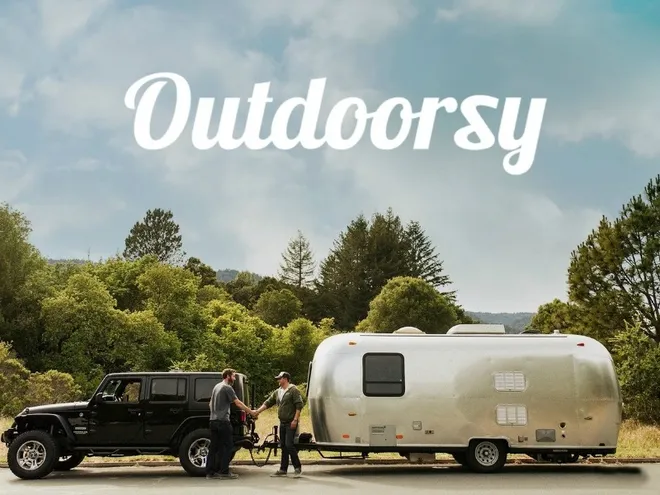The van life movement has gained significant momentum in recent years, with more and more people ditching conventional housing in favor of a mobile, minimalistic lifestyle.
This way of living offers unique advantages, including reduced costs, increased freedom, and the opportunity to explore the world from the comfort of your home on wheels.
If you’re feeling the urge to break free from the constraints of a stationary life but don’t know where to start, this article outlines 12 simple steps to help you successfully transition into the exciting world of van life.

01. Choose the Right Van
Factors to Consider
Some key factors to consider while choosing the right van for your needs:
- Size: The interior space of the van should be enough to accommodate your desired layout and belongings while still providing comfort.
- Fuel Efficiency: A more fuel-efficient vehicle will save you money on gas, which is essential for long-term travels.
- Cost: Determine your budget and the cost of the vans you are interested in, including any necessary repairs or modifications.
- Mechanical Reliability: A mechanically sound vehicle is crucial for a smooth and worry-free van life experience. Look for models with a reputation for reliability and low maintenance costs.
- Accessories & Modifications: Consider how easy it is to find parts and accessories for your chosen van, as well as the complexity and cost of making necessary modifications for your van life setup.
Popular Van Models
Some popular van models among van lifers include:
- Sprinters: A line of high-roofed vans by Mercedes-Benz known for their ample space, fuel efficiency, and durability.
- Transits: A series of spacious, reliable vans produced by Ford, offering a variety of sizes and configurations.
- Promasters: Manufactured by Ram, these vans are known for their easy-to-modify interiors and front-wheel drive, offering better traction in challenging conditions.
- Chevy Express: A durable and affordable full-sized van, providing a dependable base for a van life conversion.
Taking the time to research and choose the right van for your needs ensures a comfortable and enjoyable van life experience.
Rent First
Renting a van, camper, or RV before committing to the van life can be a good way to get a taste of what it’s like to live on the road.
According to Classic Vans, basic RVs or camper vans usually rent for a minimum of $100 per day, with luxury RVs being much more expensive than basic models.
Renting can be a good way to get a feel for what type of vehicle suits your needs and preferences before making a significant investment.
- 🌍 Outdoorsy is the #1 most trusted RV rental marketplace in the world.
- 🚐 Rent an RV, motorhome, trailer, or campervan from Outdoorsy for your next adventure.

02. Plan and Budget Your future Vanlife
Assess Your Needs
Before starting your van life, it’s crucial to assess your needs and understand what you want from this lifestyle. Consider the size and functionality of your van, the amenities you desire, and the locations you plan to visit.
- Size and functionality: The size and type of van should match your needs and activities. Consider the number of occupants, storage space, and any hobbies or sports equipment.
- Amenities: Decide on the level of comfort you prefer, such as a kitchen, bathroom, and sleeping area. Keep in mind that the more amenities you include, the higher your costs will be.
- Locations: Plan your destinations and whether you need a 4WD van or a standard van will suffice.
Calculate Van Life Costs
After assessing your needs, it’s time to calculate the costs involved in van life. These expenses include purchasing the van, conversion costs, fuel, insurance, and maintenance.
- Van purchase: The cost of the van will depend on the make, model, and condition. You can find budget-friendly options with older vans or invest in a newer, more reliable option.
- Conversion costs: The cost of converting the van will vary depending on your chosen amenities and design. It’s possible to complete a conversion on a budget, but the final price can still range from a few thousand to tens of thousands of dollars.
- Fuel: The cost of fuel should be factored into your budget, as it will be a significant ongoing expense. Fuel-efficient vans can help save money.
- Insurance: Insurance is essential for your van and can vary depending on factors such as the vehicle’s age, value, and type of coverage.
- Maintenance: Regular maintenance is crucial for keeping your van in good condition. Set aside funds for preventative care as well as unexpected repairs.
Related Guides:
– How do solar panels work on a van? (an in depth look)
Financial Planning Tips
Here are some tips for saving money and managing your budget effectively during van life:
- Save before starting: Build a financial cushion before embarking on van life. This will provide a safety net for unexpected expenses or emergencies.
- Track your spending: Keep track of your expenses regularly to ensure you stay within your budget.
- Plan for variable costs: Some costs, such as fuel, can vary greatly depending on your travel plans. Be prepared to adjust your budget accordingly.
- Avoid debt: Try to minimize debts or pay them off before starting van life, as they can be challenging to manage while on the road.
- Find free resources: Take advantage of free resources like camper spots, public showers, and Wi-Fi when available.
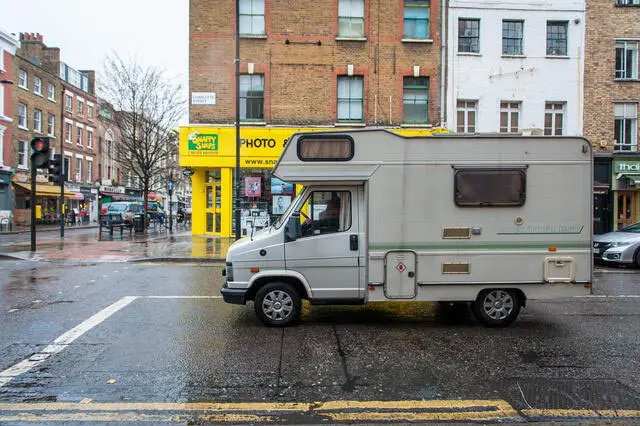

03. Purchase Your Van or Build it Yourself
Buy your first Van/RV/Camper
One of the biggest advantages of buying a ready to use RV is convenience. With a pre-built RV, you don’t have to worry about the time and effort required to convert a van into a home on wheels.
You can simply purchase an RV that meets your needs and hit the road. Additionally, pre-built RVs often come with a variety of amenities and features that can make life on the road more comfortable, such as a bathroom, kitchen, and sleeping area.
You can also choose from a range of sizes and styles to suit your preferences and budget.
However, pre-built RVs can be expensive, and may not offer the level of customization that some people desire.
Additionally, larger RVs can be difficult to maneuver and park, and may not be suitable for off-road adventures.
Build/Convert your own Van
Converting and building your own van can be a rewarding and fulfilling experience. One of the biggest advantages is customization.
You have complete control over the design and layout of your van, and can tailor it to meet your specific needs and preferences. This means you can create a home on wheels that is truly unique and reflects your personality.
Additionally, building your own van can be more cost-effective than buying a pre-built RV, since you can choose the materials and features that fit within your budget. Plus, the process of building your own van can be a great learning experience, and can give you a sense of pride and accomplishment when you finally hit the road in your finished product.
However, building your own van can be time-consuming and require a significant amount of effort and skill. Additionally, if you are not experienced in construction or electrical work, you may need to hire professionals to assist with the build, which can add to the overall cost.
Related Articles:
– Is a Van Conversion Worth It? Costs and Benefits Compared
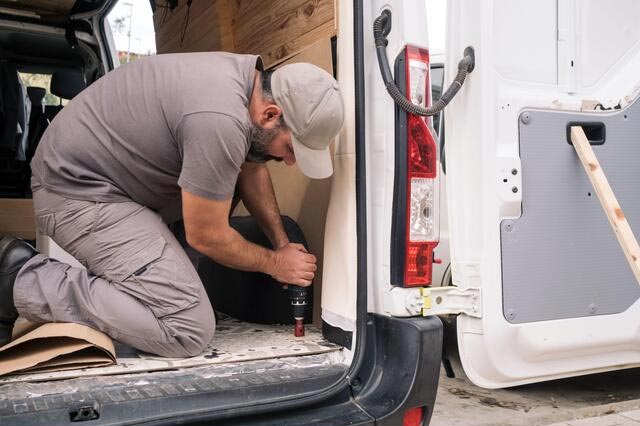

04. Choose Sustainable Energy
When starting van life, it’s important to consider sustainable energy sources to support your off-grid lifestyle and reduce your carbon footprint. In this section, we will discuss two key elements to achieve eco-friendly energy solutions: Solar Panels and Battery Systems.
If you’re just in the planning phase of your solar system, I highly recommend checking the Renogy Solar Calculator to better estimates your needs 👇
Thanks to their calculator, Renogy offers us an easy way to estimate our power needs. You simply need to fill in a few numbers and you are good to go.
Solar Panels
Solar panels are a popular choice for van dwellers seeking to harness renewable energy. They convert sunlight into electricity to power your devices and appliances, reducing the reliance on fossil fuels. Some key points to consider when choosing solar panels for your van include:
- Size and Efficiency: Choose a
solar panel that fits your van’s available space and has a high energy conversion rate. - Maintenance: Regularly clean your solar panels to ensure optimal efficiency.
- Cost: Investing in a high-quality solar system may have higher upfront costs, but will save you money and reduce your environmental impact in the long run.
Related Guides:
– How much solar do I need for my van?
– How do solar panels work on a van? (an in-depth look)
Battery Systems
An efficient battery system is crucial for storing the energy produced by your solar panels and providing power when the sun isn’t shining. When selecting a battery setup for your van, consider the following:
- Battery Type: Lithium-ion batteries are lighter and more efficient than traditional lead-acid batteries, though they may come at a higher cost.
- Capacity: Estimate your daily energy needs to determine the battery capacity required to support your lifestyle. Factor in the possibility of multiple consecutive days without sunlight.
- Inverter: Choose an inverter that can handle your energy load and supports the voltage of your devices and appliances.
Related Guides:
– A guide to the best batteries for on the go solar
To maximize efficiency and promote sustainable living, consider implementing energy conservation measures such as using energy-efficient appliances, LED lighting, and developing energy-conscious habits. By integrating solar panels and an efficient battery system, you can enjoy the freedom and flexibility of van life while contributing to a more sustainable future.
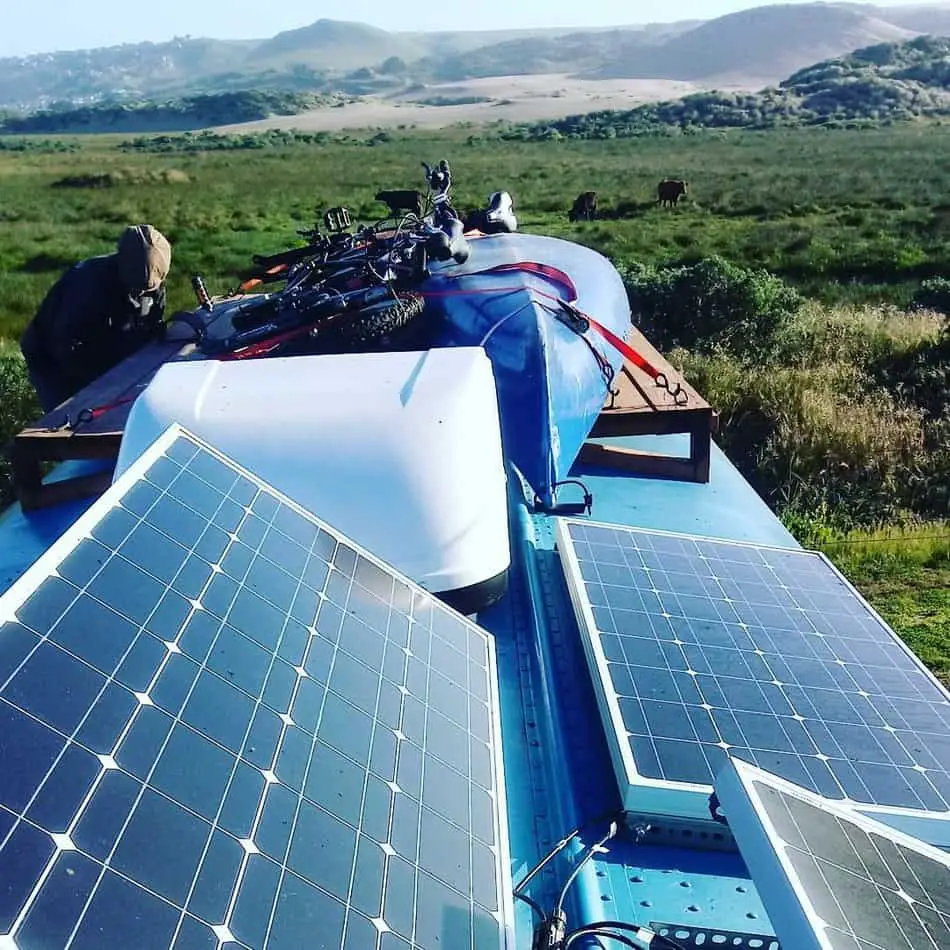

05. Preparing for Life on the Road
Developing the Right Mindset
Before embracing van life, it’s essential to adopt the right mindset. Accept that living a nomadic life will be a significant shift from a traditional lifestyle. Living in a small, mobile space requires minimalism, adaptability, and the willingness to learn as you go. Embrace the idea of living on the open road and approaching new situations with enthusiasm. Key mindset aspects to embrace:
- Less is more: Simplify your possessions
- Embrace change: Adapt to new situations and locations
- Always eager to learn: Master new skills and solve problems
- Prepare for the Worst, Hope for the Best
Trial Road Trips
It’s a good idea to go on a few trial road trips before committing to full-time van life. This will help you understand the practical aspects of living in a van, such as using a portable bathroom, cooking in a small space, and finding suitable parking spots for the night. To get the most out of your trial trips:
- Test various parking locations (e.g. rest stops, residential areas, campgrounds)
- Practice utilizing your camper-size bathroom and cooking facilities
- Identify items that are essential and things you can leave behind
Acquiring Safety Equipment
Safety is a top priority when living on the road, and acquiring the right safety equipment should be a crucial part of your preparation. Create a list of the essential tools and gear you’ll need for emergency situations, such as a first-aid kit, fire extinguisher, spare tire, and basic toolset. Also, consider investing in a reliable GPS device and the right travel apps for navigation and locating resources (e.g. gas stations, campgrounds).
Key safety equipment to have on board:
- First-aid kit
- Fire extinguisher
- Spare tire, jack, and lug wrench
- Basic toolset
- GPS device and travel apps for navigation
Contains 312 pieces of essential first aid supplies for use at home, in the office, or on the go.
Multipurpose fire extinguisher fights wood, paper, trash, plastics, gasoline, oil, and electrical equipment fires.
- The RV jack set is adjustable from 16 inches to 30 inches.
- It has a load capacity of 6,000 pounds.
- The jack features a quick and easy pull pin for adjusting the height.
- It is made of durable steel and is powder coated for maximum rust protection.
📐 The set includes 108 pieces and is available in different styles and sizes.
🧰 The set features a removable power tools accessory case, a quick-release 72-tooth ratchet for high torque ratcheting, and a durable anti-slip vinyl grip bit driver.

06. Finding Camping and Parking Spots
Researching Local Laws
Before embarking on van life, it’s essential to research local laws and regulations for parking and camping. Different cities, regions, and countries may have unique rules that dictate where overnight parking is allowed. Always adhere to these laws to avoid fines or other negative consequences. Common resources to check for local laws include city and regional websites, tourism boards, and campground directories.
National Parks and Campgrounds
National parks and campgrounds are popular options for van life overnight parking and camping. These spots typically provide a picturesque environment to park your van and enjoy nature. Free camping on BLM land (Bureau of Land Management) is a favored option among van lifers in the United States because it offers both dispersed camping and developed camping. Dispersed camping spots give greater freedom in terms of location choice, while developed campgrounds provide amenities like restrooms and ranger stations. To find these sites, consult the BLM website, AllStays app, or National Geographic maps for campground locations within national parks.
Another way to find camping spots is through boondocking, which refers to camping without amenities or hookups. Websites like Campendium, FreeCampsites.net, and iOverlander offer user-reviewed boondocking locations, often on public lands.
Related Articles:
– Can You Sleep in Your Car in National Parks?
– Can You Camp in National Parks During the Winter?
Creative Solutions
When traditional campgrounds or parking spots aren’t available or feasible, van lifers can opt for creative camping solutions:
- Neighborhoods: Selecting quiet residential areas or neighborhoods can work for a short overnight stay. Always choose legal spaces, such as unrestricted parallel parking, and avoid blocking driveways or staying for extended periods.
- Parking lots: Many retailers like Walmart, Cabela’s, and Cracker Barrel are known to permit overnight parking for a single night in their parking lots. Make sure to verify this with individual locations before settling in.
- Apps and websites: Platforms like Hipcamp, Harvest Hosts, and Boondockers Welcome connect property owners with van lifers looking for overnight spots. These options often require a fee or membership but can provide unique and private parking options.
Using these resources and being mindful of local laws, van life enthusiasts can find a variety of safe, legal, and scenic parking and camping spots to enjoy their mobile lifestyle.
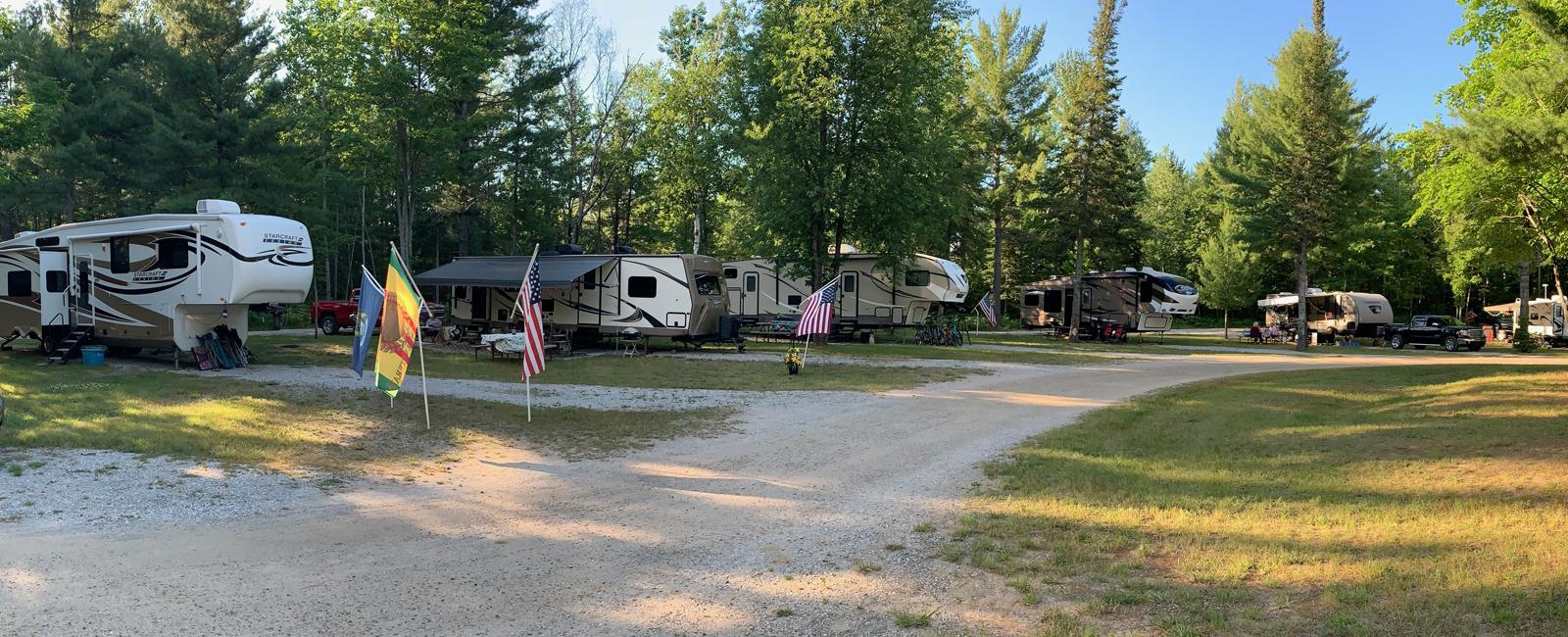

07. Embracing Minimalism and Simplicity
Decluttering
To start your van life journey with a minimalist mindset, begin by decluttering your current belongings. Ask yourself if you love and need each item. Sort them into categories: give away, recycle, sell, and keep. This process will help you make conscious choices on what to take with you in your limited van space and develop a better understanding of minimalism.
Organizing and Storage
Once you’ve decluttered, it’s time to organize the items you’ll bring into your van. Utilize smart storage solutions to maximize space and maintain simplicity. For example, consider using:
- Multi-functional furniture, such as a foldable table that doubles as a work surface and dining area.
- Vertical storage solutions, like wall-mounted shelves or magnetic strips, to free up floor space.
Remember, every new item you bring into your van should replace something you already own to keep up with the “out with the old, in with the new” mentality.
Related Articles:
– The Complete Guide to Van Life Clothing Storage
Maintaining Cleanliness
Keeping your van clean and well-maintained is essential for embracing minimalism and simplicity. Regularly evaluating your belongings and purging unnecessary items will help you sustain a minimalist lifestyle. Be diligent about cleaning and organizing your space, focusing on areas like:
- Kitchen: Keep countertops clear and prioritize the use of reusable dishware and utensils to reduce waste.
- Living area: Use storage containers and compartments to keep personal items in their designated places.
Incorporating a gratitude journal into your daily routine can also help you stay committed to a minimalistic and simpler lifestyle by reminding you of the reasons you chose this path.
With these steps, you’ll be well on your way to embracing minimalism and simplicity in your van life adventure.

08. Food and Cooking Tips
Grocery Shopping on the Road
When living the van life, efficient grocery shopping is essential. Make a list before heading to the store to ensure you purchase only the items you need. Opt for versatile ingredients that can be used in multiple meals, and choose non-perishable items when possible to maximize storage life. Buy fresh produce in smaller quantities to prevent spoilage. Also, consider purchasing a 12-volt fridge or cooler to keep perishable items fresh.
Creative Van Life Meals
Cooking in a van requires creativity and resourcefulness. Here are some tips for making delicious meals in a small space:
- Plan Your Meals: Before preparing your meals, create a meal plan based on the ingredients you have on hand. This will help you avoid waste and ensure you have enough variety in your meals.
- Choose the Right Cooking Equipment: Invest in a portable gas stove, electric induction cooker, or camping stove for easy cooking in your van. Ensure you have basic cooking utensils like pots, pans, and a cutting board.
- Simple Recipes: Stick to straightforward recipes with minimal ingredients and steps. One-pot meals are perfect for van life cooking, as they minimize the number of dishes you need to wash.
- Storage: Organize your kitchen space with stackable containers and use magnetic strips to keep knives and other utensils within reach.
- Be Efficient with Water: When washing dishes, use a spray bottle filled with soapy water to conserve your water supply. Wipe dishes with a cloth to remove excess food before rinsing with water.
Experiment with different van life cooking recipes, and don’t be afraid to get creative with your meal planning. The key to success is staying organized and adaptable while keeping things simple and enjoyable.
Related Guides:
– Vegetarian Van Life Meals: 14 Easy, Tasty Recipes for On-the-Road Cooking
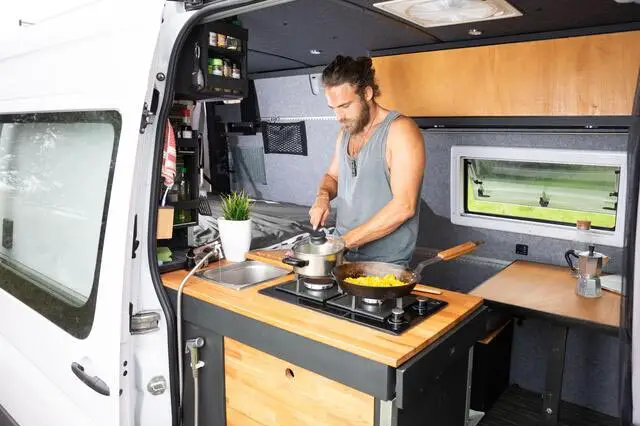

09. Working and Earning While on the Road
As you embrace the van life, it’s important to find ways to sustain your lifestyle financially. Thankfully, you have several options for earning money while on the road. In this section, we will explore freelancing opportunities, seasonal jobs, and starting online businesses.
Related Guides:
– Van life how to make money on the road – 40+ ideas
– Is It Possible to Live in a Van While Working Full Time?
Freelancing Opportunities
Freelancing is one of the most popular ways to generate income while living the van life. Many professionals can transfer their skills into freelance work, allowing them to work remotely and maintain a flexible schedule. Some popular freelancing options include:
- Writing and editing: Content creators, copywriters, and editors can find work on platforms such as Upwork and Fiverr or by connecting with clients directly (e.g., blog, magazine, or website owners).
- Graphic design: Designers can create logos, web designs, and promotional materials for clients worldwide.
- Social media management: Help businesses manage social media accounts and create content that engages their audiences.
- Photography and videography: Capture landscape, wedding, or event photos, or create videos to sell online, including product advertisements or even starting a YouTube channel.
Seasonal Jobs
Seasonal work can be an excellent option for van lifers who prefer in-person jobs or want to settle in one location temporarily. Some popular choices include:
- Farm work: Harvesting crops, planting seeds, or tending to animals on a farm.
- Festival and event staff: Working at music festivals, conferences, or other events.
- Tourism: National parks, campgrounds, and tourist attractions often hire seasonal staff to accommodate the influx of visitors.
- Retail: Seasonal retail positions at stores and restaurants tend to peak during the holidays.
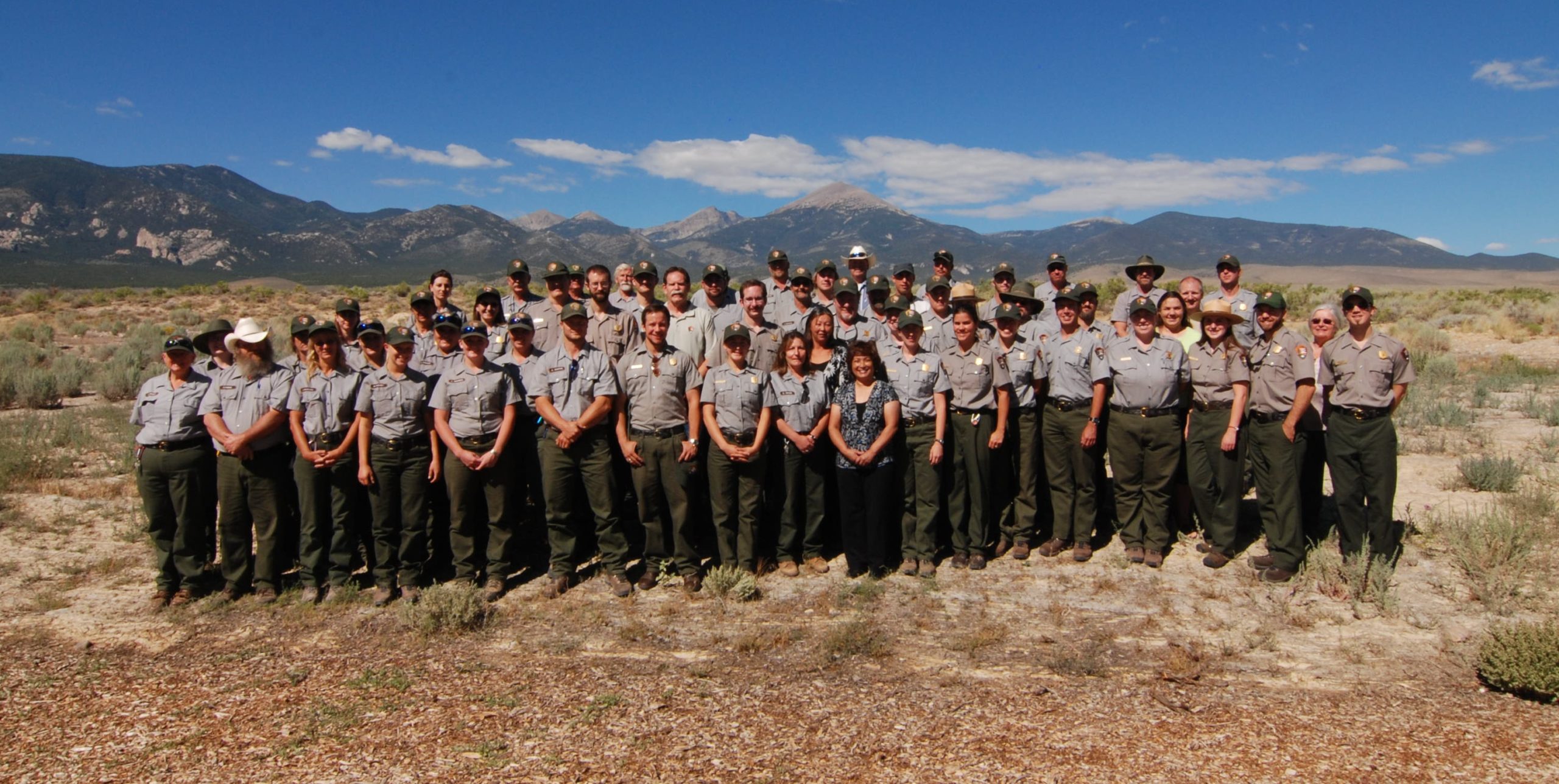
Online Businesses
Starting an online business can become a primary source of income while allowing you the freedom to work from any location. Some ideas for online businesses are:
- E-commerce: Set up an online shop to sell your handmade crafts, artwork, or unique products.
- Affiliate marketing: Promoting and selling other companies’ products in exchange for commissions.
- Online teaching or tutoring: Create courses or offer tutoring services in a subject you are knowledgeable about.
- Consulting or coaching: Help individuals or businesses navigate specific challenges by offering your valuable expertise.
By exploring these earning options, you can ensure your van life experience is sustainable and fulfilling. Weigh the pros and cons of each opportunity and choose what works best for your unique skillset and lifestyle preferences.

10. Building a Supportive Community
Connecting with Fellow Vanlifers
One of the key factors for a successful van life experience is building a supportive community. A strong network of vanlifers can make all the difference, as you’ll have lifelong friends to share the journey with, offering advice, companionship, and moral support. To connect with fellow vanlifers, consider downloading apps such as Sēkr App (formerly known as The Van Life App) which is designed specifically for this purpose. These apps can help you find upcoming meetups, caravan invitations, and other opportunities to connect with likeminded people.
Another way to meet people is by engaging with online communities and forums. Platforms like Facebook, Instagram, and Reddit have groups dedicated to van life where you can exchange stories, tips, and experiences with others who share your passion. Don’t hesitate to reach out to fellow van dwellers, as they’re likely to be open and supportive.
Participating in Gatherings and Events
Joining local events and gatherings is an excellent way to meet other vanlifers and build your support network. Van life-themed festivals, meetups, and workshops are organized throughout the year, providing you with opportunities to connect with people who share your interests and lifestyle. By participating in these events, you’ll not only make new friends but also learn from the experiences of others and expand your knowledge about van life. Always be open to collaboration, as this can lead to forming strong bonds within the community.
Ultimately, building a supportive community is essential for making the most out of your van life adventure. With the right connections and resources, you’ll quickly feel at home anywhere the road takes you.

11. Sharing Your Van Life Adventures
Embarking on a van life adventure is an exciting journey. Sharing your experiences can inspire others and help document your own memories. Here are some popular ways to share your van life adventures with friends, family, and the wider #vanlife community.
Creating a Travel Blog
A travel blog allows you to record your encounters, experiences, and tips in a creative and personalized format. You can use platforms like WordPress, Blogger, or Wix to build your own travel blog. Not only does a blog provide a platform to share your content, but it can also help you connect with like-minded individuals and even create income opportunities through sponsored content and affiliate marketing. Make sure to include captivating images, engaging storytelling, and practical advice to keep your readers coming back for more of your travel stories.
Starting a YouTube Channel
Video serves as a dynamic way to share your van life adventures. By starting a YouTube channel, you can showcase your travels in a more immersive manner, allowing viewers to experience the journey alongside you. There’s an appreciable audience for van life channels, so use helpful video titles, tags, and descriptions to reach a broader audience. Make your content unique by creating regular vlogs, sharing travel tips, or showcasing your van’s transformation. Investing in quality equipment, such as a camera or a smartphone with excellent video capabilities, can make all the difference in your final product.
Sharing on Social Media
Platforms like Instagram, Facebook, and Twitter offer a variety of ways to share your van life stories. Use captivating images, engaging captions, and relevant hashtags, like #vanlife, to connect with people interested in following your journey. Instagram is particularly popular for travel and adventure content, so be sure to utilize features like Stories and Highlights to organize your posts and showcase your travels. Engage with your followers regularly to create a sense of community and foster connections with fellow van lifers. Don’t be shy to share both the highs and the lows of van life, as this will make your content more relatable and authentic.

Frequently Asked Questions
What are essential van life items?
Before embarking on your van life journey, it is crucial to have the right items in place. Some essential van life items include a comfortable bed, storage solutions, an efficient cooking setup, a water storage system, off-grid power options such as solar panels and batteries, appropriate insulation for temperature regulation, a trusty toolkit for repairs, and essential safety items such as fire extinguishers and first aid kits.
How to find the best van for living?
Finding the perfect van comes down to understanding your specific needs and budget. Start by analyzing your budget, space requirements, and lifestyle preferences. Decide if you prefer a new or used vehicle, and research which van models have a reputation for reliability and good fuel economy. Larger vans offer more living space but may be harder to park, while smaller vans are easier to maneuver but provide less room.
How to manage finances on the road?
Managing your finances during van life involves careful planning and budgeting. Track your income and expenses, reduce unnecessary bills, and make the most of apps that help you monitor your spending. Invest in a quality van up-front to minimize costly repairs down the road, and look for free or affordable camping options where possible.
What’s the best way to plan a van life route?
To plan the perfect van life route, determine your top adventure destinations and attractions you want to visit, and then plan your route accordingly. Use travel apps and websites dedicated to finding and sharing camping spots to discover locations along the way.
How to handle hygiene and sanitation?
Maintaining hygiene and sanitation on the road is essential for a comfortable and healthy van life experience. Use public restrooms, campground facilities, or portable toilet options for daily use. For showering, gyms and recreational centers often offer day passes, or consider investing in a portable camping shower.
How to stay connected while traveling?
Staying connected on the road may be crucial for work, entertainment, and staying in touch with loved ones. The key is to invest in a reliable mobile internet solution like a hotspot or cell phone plan with a generous data allowance. Familiarize yourself with local WiFi spots, such as libraries, cafes, or campgrounds, where you can work or connect when needed. Take advantage of apps that help locate signal strengths to ensure you can connect in various locations.

